Bridging Disciplines for a Greener Future: Highlights from the 4th Frontiers Forum on Environmental EconomicsRelease time: 2024-10-16
Bridging Disciplines for a Greener Future: Highlights from the 4th Frontiers Forum on Environmental Economics
The 4th Frontiers Forum on Environmental Economics, titled Environmental Economics + X, was held at the University of Hong Kong Beijing Center from October 11-12, 2024. Co-hosted by Center for Industrial Development and Environmental Governance (CIDEG), Tsinghua University, HKU Business School and HKU Jockey Club Institute for Global Enterprise and Sustainability, the forum brought together 14 young scholars from top universities, including Tsinghua University, Peking University, the National University of Singapore, the Hong Kong University of Science and Technology, Renmin University of China, University of International Business and Economics, Xiamen University, and East China Normal University. These scholars shared their latest research, offering fresh insights into environmental economics through interdisciplinary approaches.
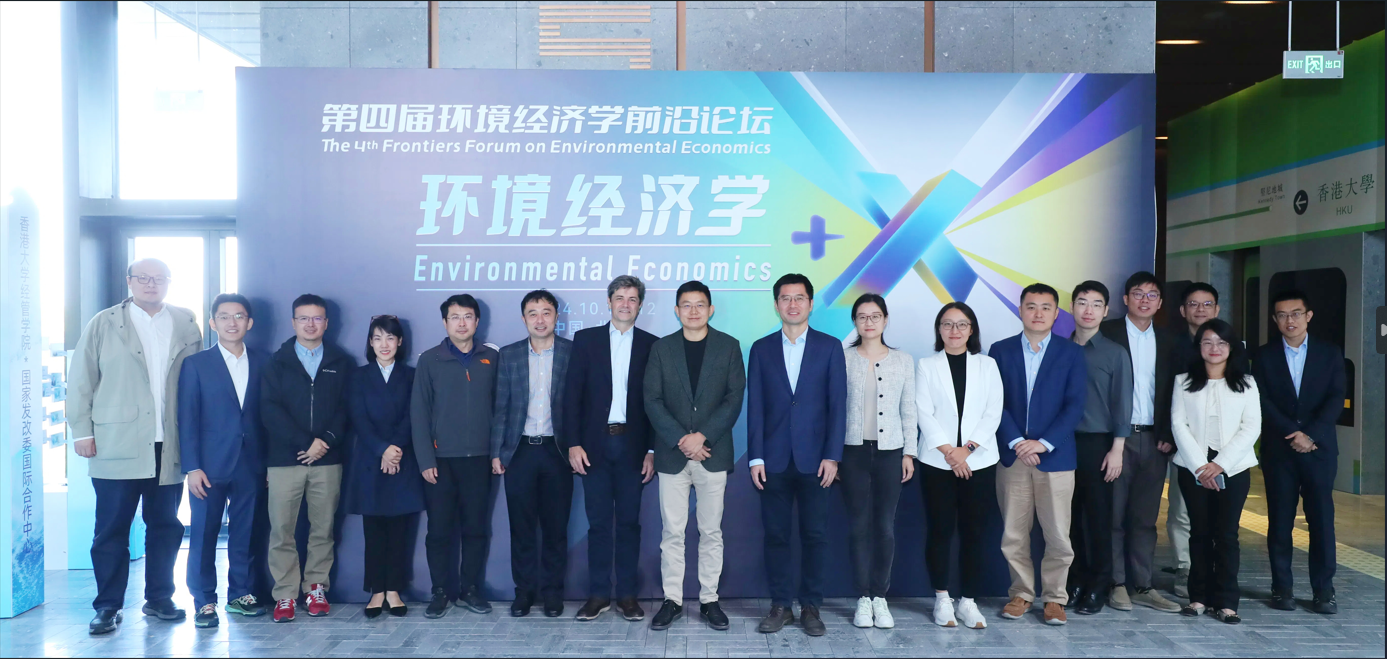
Opening Remarks
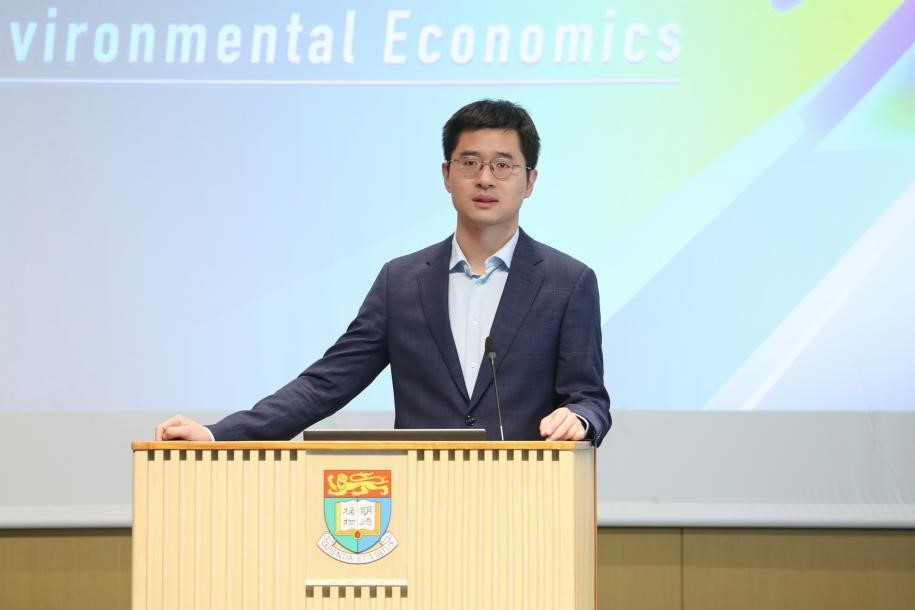
Opening Remarks by Junming Zhu
Professor Junming Zhu , Vice Dean of Tsinghua University’s School of Public Policy and Management, opened the forum by reflecting on its growth over the past four years. He emphasized the importance of interdisciplinary collaboration in addressing global environmental challenges, highlighting the role of academic pioneers such as Martin Weitzman, Herman Daly, and Bob Ayres, who integrated ecological perspectives into economic theory.
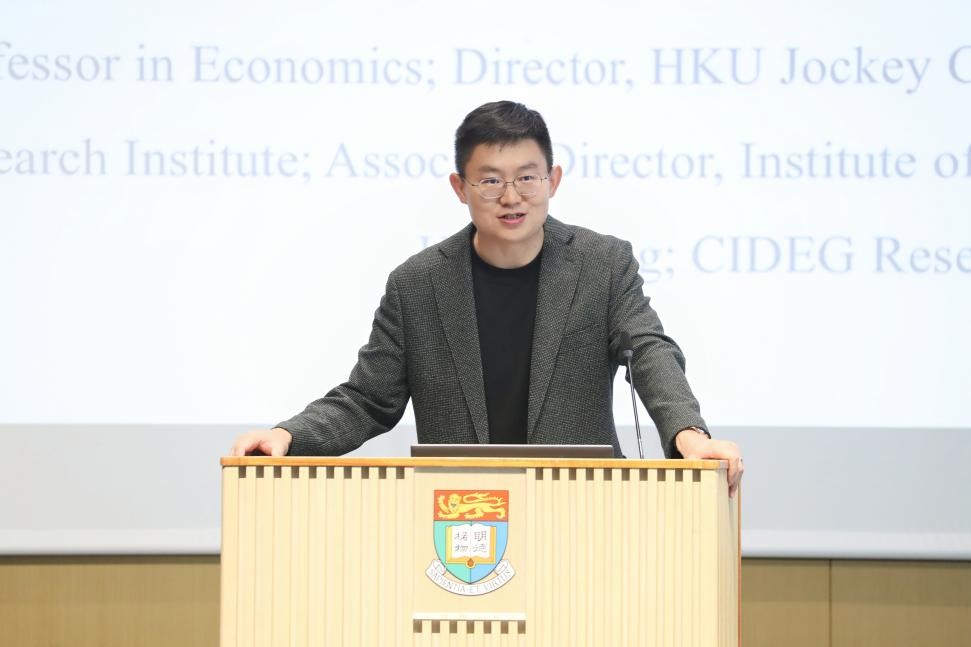
Opening Remarks by Guojun He
Professor Guojun He, Director of the HKU Jockey Club Institute for Global Enterprise and Sustainability and an Economics Professor at the University of Hong Kong, highlighted the forum’s rigorous selection of papers, noting that many papers presented at previous forums have been published in top journals like American Economic Review and Nature Sustainability. He emphasized that this year's theme, Environmental Economics + X, reflects the growing need for environmental economics to engage with other fields for innovative solutions.
The first day of the forum, chaired by Professor Guojun He and Professor Junming Zhu, featured presentations from several scholars:
Deyu Rao, Assistant Professor in the Department of Economics at the Hong Kong University of Science and Technology, presented Water Woes in a Woven World: The Economic and Trade Impacts of Water Stress, exploring how climate change and water stress impact global trade and agricultural productivity using satellite data.
Tianshi Mu, Assistant Professor in the Department of Economics at Tsinghua University’s School of Economics and Management, shared his research, The Dynamic Effects of Renewable Subsidies in the Green Energy Transition. His study showed how renewable energy subsidies in Texas reduced long-term CO2 emissions by promoting early investment in wind energy.
Hao Zhao, Assistant Professor at Renmin University of China’s School of Ecology and Environment, introduced An efficient mechanism to mitigate stock externalities in rights-based common-pool resource management: Theory and experiments, proposing a decentralized system to improve resource allocation in common-pool resources.
Mengdi Liu, Associate Professor in the School of International Trade and Economics at University of International Business and Economics, presented Better Targeting through Machine Learning in Environmental Enforcement, showcasing how machine learning models can optimize environmental inspections and improve detection rates.
Da Zhang, Associate Professor at the Institute of Energy, Environment and Economy and Deputy Director of the Tsinghua-CTG Joint Center for Climate Governance and Low-Carbon Transformation at Tsinghua University, presented An Integrity Assessment of Global Forest Carbon Offset Projects. His study evaluated the credibility of forest carbon offset projects, calling for improved transparency and supervision in carbon markets.
Zhi Li, Associate Professor at Xiamen University’s School of Economics & The Wang Yanan Institute for Studies in Economics, discussed The Ratchet Effect and Its Amendments in Threshold Public Goods Provision: An Experimental Investigation, exploring how to overcome the ratchet effect in public goods provision through revised climate policies.
Penglong Zhang, Associate Professor at Tsinghua University’s School of Public Policy and Management, presented Heterogeneous Cleaners: Firm Exports and Carbon Emissions in China, examining how different firm sizes and production modes impact carbon emissions, and suggesting targeted policies to reduce emissions.
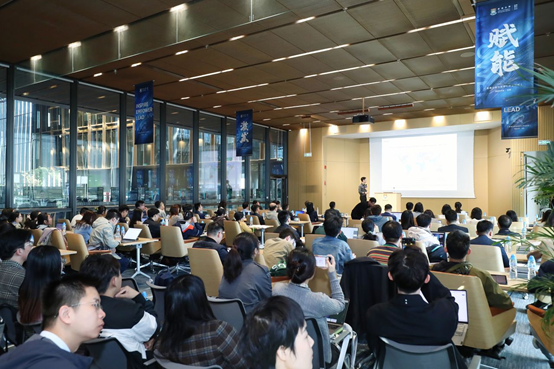
On the second day, chaired by Professor Mingang Zhang from the Central University of Finance and Economics and Professor Guojun He, the forum continued with further presentations:
Shuo Li, Post-Doctoral Fellow in the Faculty of Business and Economics at the University of Hong Kong, shared his research, Redesign China’s Air Pollution Abatement Scheme. He proposed a new pollution reduction target system based on cross-city pollution spillovers to improve nationwide air quality.
Ran Song, Assistant Professor in the Department of Economics at the National University of Singapore, presented Can Return Migration Reshape Environmental Awareness and Preferences: Evidence from the Great Recession in China, showing that return migration from environmentally conscious regions can significantly raise local environmental awareness.
Kaixing Huang, Researcher at the China Center for Agricultural Policy at Peking University, presented The Unexpected Impact of Genetically Modified Crops on Global Carbon Emissions. His study found that genetically modified crops increase global carbon emissions due to expanded agricultural land use and higher fertilizer consumption.
Xi Ji, Associate Professor (with tenure) in the School of Economics at Peking University, discussed Measuring Sustainable Growth under Limited Substitutability, emphasizing the need to balance economic and environmental growth for sustainable development.
Yu Qin, Dean’s Chair and Associate Professor in the Department of Real Estate at the National University of Singapore Business School, shared The Impacts of Board’s Unexpected Flood Experiences on Corporate ESG Performance. Her study found that board members' personal experiences with floods positively affect their companies' environmental, social, and governance (ESG) performance.
Huanhuan Wang, Professor at the School of Economics and Management/Law School at East China Normal University, presented Dirty Trade War: The Effect of Trade War on Carbon Emissions, analyzing how US-China trade tensions led to higher carbon emissions due to relaxed environmental regulations and shifts in production.
Alberto Salvo, Dean’s Chair and Associate Professor in the Department of Economics at the National University of Singapore, concluded the forum with his presentation, Incentivized personal carbon scores lower the carbon intensity of urban mobility and spill over to pro-science climate attitudes, which demonstrated that providing feedback on personal carbon scores can reduce urban carbon emissions and encourage pro-environmental behavior.
Closing Remarks
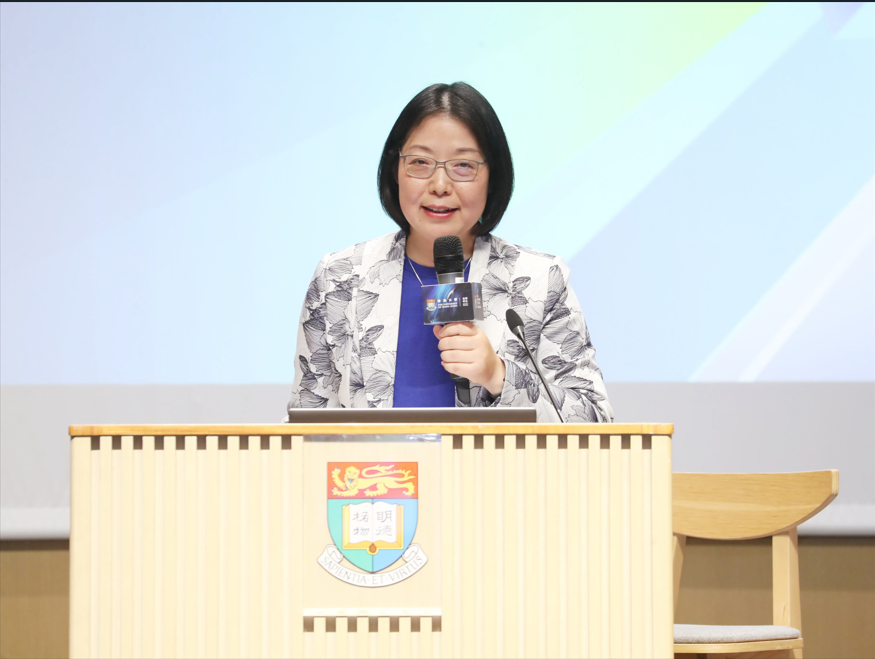
Closing Remarks by Ling Chen
In her closing remarks, Professor Ling Chen, Director of CIDEG, praised the forum’s success in fostering interdisciplinary research and collaboration. Reflecting on the theme Environmental Economics + X, she emphasized the need for new paradigms of knowledge production and invited scholars to continue exploring innovative approaches to environmental economics.
Looking ahead, Professor Chen expressed excitement for the forum’s fifth anniversary in 2025, which will also coincide with the 20th anniversary of CIDEG. She invited all participants to return to Beijing for the milestone event.
The two-day forum attracted over 200 in-person attendees and more than 75,000 online viewers, cementing its status as a premier academic event in environmental economics.
